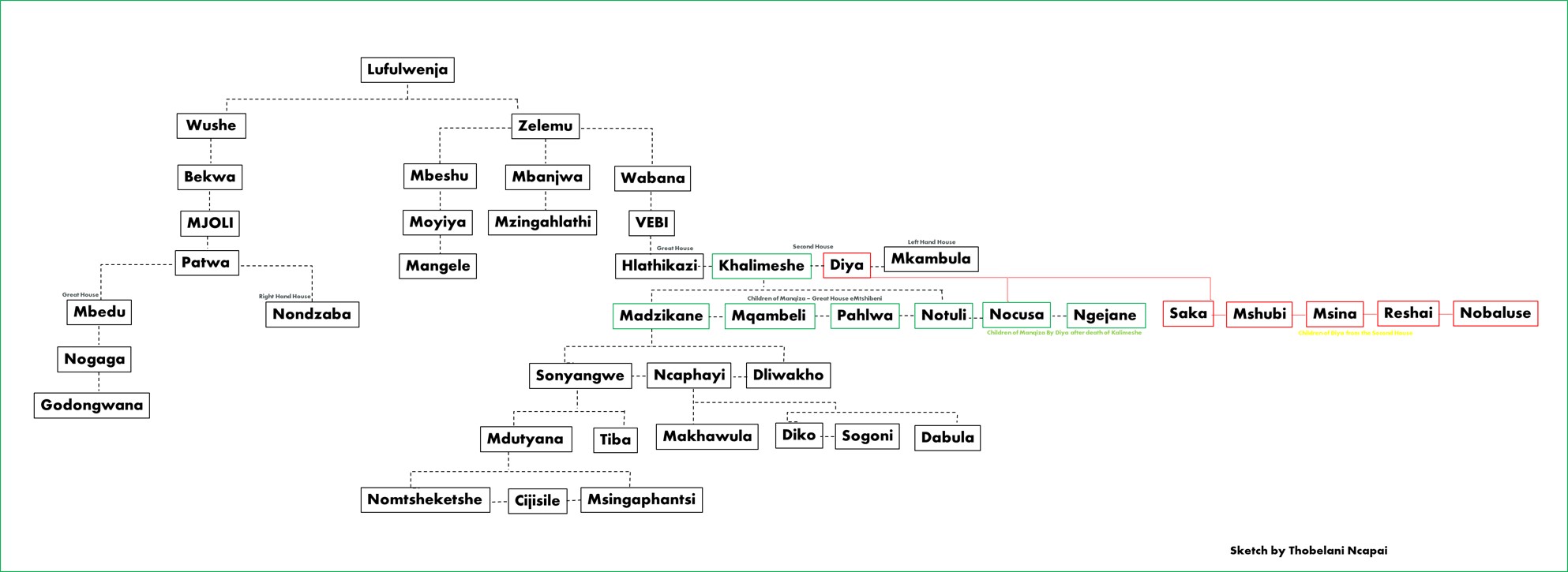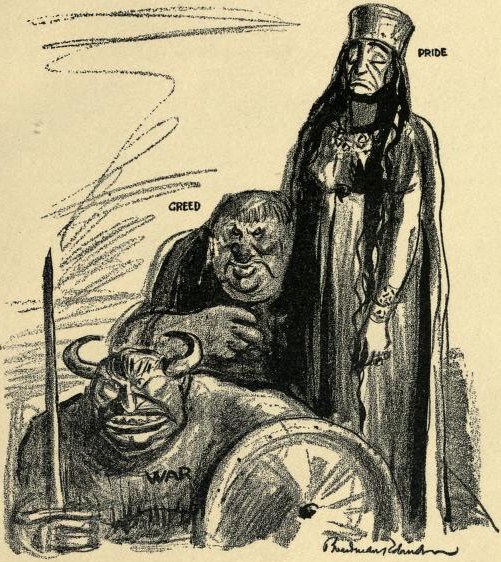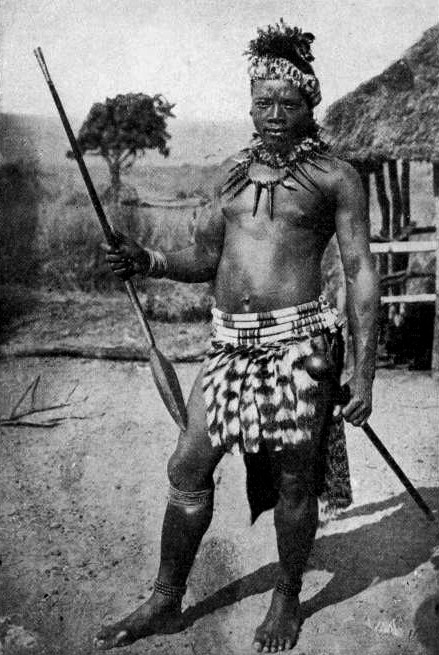|
AmaBhaca
The Bhaca people or amaBhaca are an eMbo ethnic group in South Africa. Background AmaBhaca were formerly known as the Zelemus or AbakwaZelemu between the 1700s until 1830 when they were formally referred to as AmaBhaca. They are the descendants of chief Zelemu who lived in the Pongola and ruled his people who were part of the abaMbo people. Chief Zelemu shared the same ancestor with Chief Wushe by the name of Lufulwenja. Zelemu and Wushe went separate ways in the early 1700s and their descendants were both called the AmaWushe and AbakwaZelemu. It was in the 1730 when their grandsons ( Khalimeshe and Mjoli) reunited again to form one tribe that later migrated south under the leadership of Madzikane ka Khalimeshe. Ncapayi King Ncapayi had many wives. First wife Makhohlisa (daughter of Dzanibe clan) gave birth to King Diko and Sogoni. His second wife, Indlu yekunene, bore him Makaula, while his third wife Iqadi lendlu enkulu, produced Dabula and Mpongoma. Ncapayi is said to h ... [...More Info...] [...Related Items...] OR: [Wikipedia] [Google] [Baidu] |
AmaBhaca Wushe Zelemu
The Bhaca people or amaBhaca are an eMbo ethnic group in South Africa. Background AmaBhaca were formerly known as the Zelemus or AbakwaZelemu between the 1700s until 1830 when they were formally referred to as AmaBhaca. They are the descendants of chief Zelemu who lived in the Pongola and ruled his people who were part of the abaMbo people. Chief Zelemu shared the same ancestor with Chief Wushe by the name of Lufulwenja. Zelemu and Wushe went separate ways in the early 1700s and their descendants were both called the AmaWushe and AbakwaZelemu. It was in the 1730 when their grandsons ( Khalimeshe and Mjoli) reunited again to form one tribe that later migrated south under the leadership of Madzikane ka Khalimeshe. Ncapayi King Ncapayi had many wives. First wife Makhohlisa (daughter of Dzanibe clan) gave birth to King Diko and Sogoni. His second wife, Indlu yekunene, bore him Makaula, while his third wife Iqadi lendlu enkulu, produced Dabula and Mpongoma. Ncapayi is said to h ... [...More Info...] [...Related Items...] OR: [Wikipedia] [Google] [Baidu] |
List Of Bhaca Kings
Below are the traditional chiefs and kings of Zelemu and Wushe people who were later referred to as AmaBhaca After the death of King Ncapai the kingdom split into two ruling lines: External linksBhaca, AmaBhaca {{DEFAULTSORT:Bhaca kings Ethnic groups in South Africa 19th-century monarchs in Africa South African chiefs Monarchies of South Africa ... [...More Info...] [...Related Items...] OR: [Wikipedia] [Google] [Baidu] |
King Ncapayi
Ncapayi (also spelt as Ncapai or Ncaphayi) was the king of the Bhaca people between 1826 until his death in 1846. He was the second son from the first wife of King Madzikane, the firstborn being Sonyangwe his elder brother. He resided at his father's royal residence in Mpoza facing the Mganu mountains and also built another residence in the nearby Lutateni.(Soga, p. 443) While trying to attack the Mpondo people due to the Maitland treaty he fell off the cliff and died in a place called Nowalala near Ntabankulu in March 1844. Faku ordered he must be killed to save him from pain and agony he had suffered as for days he had plunged beneath the cliff.(Hammond-Tooke, W.D, p. 34 - 37) See also * List of Bhaca kings Below are the traditional chiefs and kings of Zelemu and Wushe people who were later referred to as AmaBhaca After the death of King Ncapai the kingdom split into two ruling lines: External linksBhaca, AmaBhaca {{DEFAULTSORT:Bhaca k ... References ... [...More Info...] [...Related Items...] OR: [Wikipedia] [Google] [Baidu] |
Eastern Cape
The Eastern Cape is one of the provinces of South Africa. Its capital is Bhisho, but its two largest cities are East London and Gqeberha. The second largest province in the country (at 168,966 km2) after Northern Cape, it was formed in 1994 out of the Xhosa homelands or bantustans of Transkei and Ciskei, together with the eastern portion of the Cape Province. The central and eastern part of the province is the traditional home of the indigenous Xhosa people. In 1820 this area which was known as the Xhosa Kingdom began to be settled by Europeans who originally came from England and some from Scotland and Ireland. Since South Africa's early years, many Xhosas believed in Africanism and figures such as Walter Rubusana believed that the rights of Xhosa people and Africans in general, could not be protected unless Africans mobilized and worked together. As a result, the Eastern Cape is home to many anti-apartheid leaders such as Robert Sobukwe, Oliver Tambo, Nelson Mandel ... [...More Info...] [...Related Items...] OR: [Wikipedia] [Google] [Baidu] |
Ncapai
Ncapai (also spelt as Ncapayi or Ncaphayi) was the king of the Bhaca people between 1826 until his death in 1845. He was the second son from the first wife of King Madzikane ka Zulu; the first born being Sonyangwe his elder brother. He resided at his father's royal residence in Mpoza, the great place facing Mganu mountains and also built another residence in the nearby Lutateni.(Soga, p. 443) While trying to attack the Mpondo people, due to the Maitland treaty, he fell off a cliff and died in a place called Nowalala, near Ntabankulu in March 1846. Faku kaNgqungqushe ordered that he must be killed to save him from the pain and agony he had suffered for days after he had plunged beneath the cliff.(Hammond-Tooke, W.D, p. 34 - 37) Ncapayi is said to have been a ruthless freebooter.(George McCall Theal,History of South Africa from 1873 to 1884 p. 37) See also *List of Bhaca kings Below are the traditional chiefs and kings of Zelemu and Wushe people who were l ... [...More Info...] [...Related Items...] OR: [Wikipedia] [Google] [Baidu] |
Shaka
Shaka kaSenzangakhona ( – 22 September 1828), also known as Shaka Zulu () and Sigidi kaSenzangakhona, was the king of the Zulu Kingdom from 1816 to 1828. One of the most influential monarchs of the Zulu, he ordered wide-reaching reforms that re-organized the military into a formidable force. King Shaka was born in the lunar month of ''uNtulikazi'' (July) in the year of 1787 near present-day Melmoth, KwaZulu-Natal Province, the son of the Zulu King Senzangakhona kaJama. Spurned as an illegitimate son, Shaka spent his childhood in his mother's settlements, where he was initiated into an '' ibutho lempi'' (fighting unit), serving as a warrior under Inkosi Dingiswayo. King Shaka further refined the ''ibutho'' military system and, with the Mthethwa Paramountcy's support over the next several years, forged alliances with his smaller neighbours to counter Ndwandwe raids from the north. The initial Zulu maneuvers were primarily defensive, as King Shaka preferred to apply pressure d ... [...More Info...] [...Related Items...] OR: [Wikipedia] [Google] [Baidu] |
King Faku
King is the title given to a male monarch in a variety of contexts. The female equivalent is queen, which title is also given to the consort of a king. *In the context of prehistory, antiquity and contemporary indigenous peoples, the title may refer to tribal kingship. Germanic kingship is cognate with Indo-European traditions of tribal rulership (c.f. Indic ''rājan'', Gothic ''reiks'', and Old Irish ''rí'', etc.). *In the context of classical antiquity, king may translate in Latin as '' rex'' and in Greek as ''archon'' or ''basileus''. *In classical European feudalism, the title of ''king'' as the ruler of a ''kingdom'' is understood to be the highest rank in the feudal order, potentially subject, at least nominally, only to an emperor (harking back to the client kings of the Roman Republic and Roman Empire). *In a modern context, the title may refer to the ruler of one of a number of modern monarchies (either absolute or constitutional). The title of ''king'' is used ... [...More Info...] [...Related Items...] OR: [Wikipedia] [Google] [Baidu] |
Pondoland
Pondoland or Mpondoland (Xhosa: ''EmaMpondweni''), is a natural region on the South African shores of the Indian Ocean. It is located in the coastal belt of the Eastern Cape province. Its territory is the former Mpondo Kingdom of the Mpondo people. Geography Mpondoland stretches between the Mthatha River, whose mouth is its southernmost point, and the Mtamvuna River in the north along a coastal strip that is not more than 50 km wide. The Mzimvubu River divides Mpondoland into an eastern and a western region. It is a mountainous area whose main vegetation consists in thornveld, grassland, as well as subtropical evergreen forests in the humid coastal valleys. History The Khoikhoi and San people had inhabited the region since ancient times in scattered nomadic groups. About 500 AD the Xhosa speaking Ngunis settled in the area, for the mountain grasslands were a good resource for cattle-rearing. Geographically Mpondoland was a remote area, not strongly affected by the events ... [...More Info...] [...Related Items...] OR: [Wikipedia] [Google] [Baidu] |
Cupidity
Greed (or avarice) is an uncontrolled longing for increase in the acquisition or use of material gain (be it food, money, land, or animate/inanimate possessions); or social value, such as Social status, status, or Power (social and political), power. Greed has been identified as undesirable throughout known human history because it creates behavior-conflict between personal and social goals. Nature of greed The initial motivation for (or purpose of) greed and actions associated with it may be the promotion of personal or family survival. It may at the same time be an intent to deny or obstruct competitors from potential means (for basic survival and comfort) or future opportunities; therefore being insidious or Tyranny, tyrannical and having a negative connotation. Alternately, the purpose could be defense or counteractive response to such obstructions being threatened by others. But regardless of purpose, ''greed'' intends to create an inequity of access or distribution t ... [...More Info...] [...Related Items...] OR: [Wikipedia] [Google] [Baidu] |
King Dingane
Dingane ka Senzangakhona Zulu (–29 January 1840), commonly referred to as Dingane or Dingaan, was a Zulu chief who became king of the Zulu Kingdom in 1828, after assassinating his brother Shaka. He set up his royal capital, uMgungundlovu, and one of numerous military encampments, or kraals, in the Emakhosini Valley just south of the White Umfolozi River, on the slope of Lion Hill (''Singonyama''). Rise to power Dingane came to power in 1828 after assassinating his half-brother Shaka with the help of another brother, Umhlangana, as well as Mbopa, Shaka's bodyguard. They were traditionally said to have killed Shaka because of his increasingly brutal behaviour after the death of his mother, Nandi. The assassination took place at present-day Stanger. Governance and reverence Captain Gardiner related that Dingane was revered as the "great idol" of the Zulu nation, while Reverend Francis Owen, who observed his rule at close quarters while stationed at Umgungundhlovu, highlighted ... [...More Info...] [...Related Items...] OR: [Wikipedia] [Google] [Baidu] |
Thembu People
The AbaThembu (''abaThembu ababhuzu-bhuzu, abanisi bemvula ilanga libalele'') are a Xhosa-speaking Bantu people who were under the Thembu Kingdom. According to Bantu oral tradition, the AbaThembu migrated along the east coast of Southern Africa before settling in KwaZulu-Natal. The earliest known AbaThembu Ancestor is King Mbulali KaNazinzaba Who lived from 1202 up until the year he died which was 1258, whose grandson , He led his people out of what was later to became the South African province of KwaZulu-Natal to Dedesi in the Now Transkei region of the Present-day Eastern cape province of South Africa. The AbaThembu emerged as a unified people during the reign of King Ngubengcuka, who united clans living in Thembuland into a single political entity, owing allegiance to the AbaThembu royal family, or ''Hala Mvelase''. Famous AbaThembus include Prince Nelson Mandela, whose father was a reigning nobleman from a junior branch of the AmaMadiba clan of kings, and Prince Walter Si ... [...More Info...] [...Related Items...] OR: [Wikipedia] [Google] [Baidu] |
Assegai
An assegai or assagai (Arabic ''az-zaġāyah'', Berber languages, Berber ''zaġāya'' "spear", French language, Old French ''azagaie'', Spanish ''azagaya'', Italian ''zagaglia'', Middle English ''lancegay'') is a pole weapon used for throwing, usually a light spear or javelin made up of a wooden handle and an iron tip. Area of use The use of various types of the assegai was widespread all over Africa and it was the most common weapon used before the introduction of firearms. The Zulu people, Zulu, Xhosa people, Xhosa and other Nguni people, Nguni tribes of South Africa were renowned for their use of the assegai. ''Iklwa'' Shaka of the Zulu people, Zulu invented a shorter stabbing spear with a two-foot (0.61 m) shaft and a larger, broader blade one foot (0.3 m) long. This weapon is otherwise known as the ''iklwa'' or ''ixwa'', after the sound that was heard as it was withdrawn from the victim's wound. The traditional spear was not abandoned, but was used to ranged we ... [...More Info...] [...Related Items...] OR: [Wikipedia] [Google] [Baidu] |






